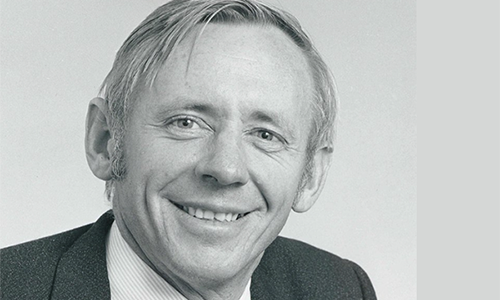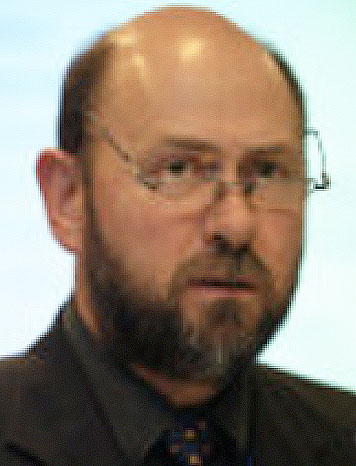
by PAUL COLLITS – MANY of today’s readers may not know who John Hyde is. Certainly, very few under forty would have heard of him.
John Hyde is a retired Western Australian farmer, writer, think-tank commissar and former MP who, in the early 1980s, found himself in the Australian Parliament and the leader of the Liberal Party “dries”.
- Their focus on economic freedom seemed not to have noticed the emergent cultural revolution driven by neo-marxists.
- The dries simply didn’t see woke corporatism or crony capitalism coming.
- Liberal MPs are now either green communists like Matt Kean or useless idiots like Matthew Guy.
He has just now been given a gong in the form of the Order of Australia. I was informed of this well-deserved award by the Mannkal Foundation, with whom Hyde has been long associated.
As The Spectator Australia noted: “Mr Hyde has left a mark on Australian policy and thinking that will continue to positively impact future generations. His intellectual rigour saw him challenging existing economic policies, and paved the way for far-reaching reforms to Australia’s economic settings.”
LIBERAL
True enough. But is Hyde yesterday’s liberal man?
Hyde has been a trooper for freedom. It was to be expected that his life and work would be celebrated afresh by the friends of freedom. But his political agenda has been proven by subsequent events to have been hopelessly limited and misplaced.
His life’s work and focus now looks to have been puny in the face of the modern COVID tyranny, the totalitarian globalism that he and his peers seemed to have never seen coming – they saw globalisation as an unalloyed good – and the postmodernist melding of economic liberalism with woke Left-liberalism.
The dries were a ginger group within the 1980s Fraser Government and the subsequent Peacock opposition, agitating for more liberal economic policies.
They were the free marketeers of the eighties. They took their name as a reaction to the “wets”, those dissidents within the Thatcher Government in the United Kingdom who took exception to the emergent ruling ideas of her Government, which prioritised free trade, anti-unionism, privatisation, out-sourcing, fiscal continence and small government.
Thatcher progressively got rid of many of the wets over the course of the 1980s. (Famously, she didn’t think much of her colleagues. There is the old joke about Thatcher taking her cabinet colleagues out to dinner. She said, I’ll have the beef. The waiter replied, what about the vegetables? She said, they’ll have the beef too).
John Hyde was its outstanding leader in Australia. His colleagues included Bert Kelly (the Australian Financial Review’s Modest Farmer), Jim Carlton, Ross McLean and Peter Shack, and many more besides whose names have been long forgotten and would mean nothing to most Australians today.
They gave rise to a number of emergent think-tanks, such as The Centre for Independent Studies (CIS).
Hyde wrote his political and ideological memoir, Dry, in 2002. You can download the book for free at the Institute of Public Affairs (IPA) website.
Here was a fairly recent tribute from the CIS (quoted in full): “In economic policy, as in fashion and music, the 1970s were generally a dreary decade: Keynesianism, stagflation, energy crisis. But out of that miserable era rose a generation of free-market giants in public life – among them the former Western Australian federal Liberal MP John Hyde, whom the Atlanta-based Foundation for Economic Education recently honoured as an international hero.
“Hyde was a federal backbencher for less than a decade, from 1974 to 1983. But he was a rare thing: a public intellectual and a public figure, whose ideas of tariff cuts and economic reform helped eventually transform Australia from a regulated, protected and highly unionised economy into the envy of the industrialised world.
GROUNDED
“One reason Hyde’s ideas were successful is that they were grounded in data, hard facts and evidence-based public policy. The former farmer, who lost his right arm in a farm accident, was a classical liberal because he believed in the power of free markets and free trade. But he was also a conservative because he believed that Canberra’s attempts to transform the nation via regulation and centralisation was something the federal government does at its own peril — and everyone else’s.
“Hyde was not always popular with his fellow Coalition parliamentary colleagues. That’s because he publicly called out the likes of Malcolm Fraser, agrarian socialist then-Country Party politicians and even paternalistic Liberals as defenders of economic protectionism that had long been a pillar of Australian nationhood. Hyde led the ‘dries’ against those ‘wets’; and in 2002 he wrote Dry: In Defence of Economic Freedom, an intellectual memoir dedicated to the ground-breaking episodes in Australian economic history.
“In recognising John as an international hero, the Foundation for Economic Education observed he was ‘the farmer who freed Australia’s economy’ and he ‘never let political affiliation get in the way of doing the right thing’. Count CIS and our supporters among his many admirers.”
Well, they would say that. What should we make of John Hyde’s legacy today? Was he, as one acolyte has claimed, “the farmer who freed the Australian economy”?
Not really. He was one contributor to one sub-grouping in the Liberal Party, which made a few gains in economic policy for a short time. The gains made in the 1980s and 1990s haven’t lasted. They have been quite ephemeral, as it turns out.
To cite one example, enterprise bargaining and freeing workplaces from union domination, a core concern of the dries, turned to dust with the 2000s disaster that was Work Choices.
The priorities of the ‘dries’ now look like so much ancient history, as the key institutions of Australian politics and life have turned to rubbish.
An independent, career public service? Gone. Education? What education? Ministerial responsibility? Don’t make me laugh. Defence? All the army seems to do is conduct woke training exercises, not military ones. Aboriginal reconciliation? Nope, they still hate us. Small government? Now government runs everything. Political “overreach”? Nah, call it totalitarianism. Fiscal rectitude? The monies gained from the sale of public assets are simply used to bolster slush funds to be disbursed to preferred electorates come election time. Free trade? No, only overly complex, stitched-up deals, sometimes with communist dictatorships who simultaneously use, despise and own us. The Liberal Party itself? Mostly they are either green communists like Matt Kean, useless idiots like Matthew (call me “Matt”) Guy, or confused, ineffectual wannabes like The Dom.
STUCK
You can make the point without even mentioning Scott Morrison, but let’s anyway. Nothing much the dries did stuck. The things that did stick have not gone well, to put it politely.
Were the dries conservative? The British curmudgeon journalist, Peter Hitchens, has stated that it was a myth that Margaret Thatcher was a conservative.
He has argued compellingly that Thatcher never did anything to advance the cause of social and cultural conservatism. Hitchens is right about Thatcher.
Nor were the Australian dries true conservatives. Not remotely so. (Howard and Abbott were never simply neo-liberals like the authentic dries. As well as being pragmatists, they moved well beyond economic preoccupations and embraced core conservative issues such as immigration, boat people, Aboriginal affairs, climate policy – remember Kyoto? – and the culture wars. To their credit).
The dries thought that our problems would be solved with less government.
They were right about the subjects they pursued. The problem was what they missed.
They were economic liberals who thought, we now know wrongly, that the greatest issues facing Australia at that time were the absence of free markets.
Their focus on economic freedom seemed to have not noticed or prioritised the emergent cultural revolution driven by neo-marxists and post-modernists who, correctly, determined that culture trumped economics and that culture was upstream from politics.
That revolution has taken all before it, and crushed our liberties and rights in the process. The dries’ core activities and the policy victories they achieved have proven to have been chimeric wins.
Enterprise bargaining? Whoop de do. Privatisation and outsourcing have proven to have been disastrous, for example.
The dries simply didn’t see woke corporatism or crony capitalism coming. They assumed that governments were always bad actors (mostly correct) and that corporations were mostly good actors (hopelessly incorrect).
Deregulation’s benefits in the overall scheme of things were oversold. The dries’ (correct) urgings in relation to fiscal rectitude have been simply abandoned by all governments. We are all disciples of “quantitative easing” and endless government spending now.
If Hyde and his colleagues were all about getting governments (including on their own side of politics) to behave well, they were conspicuous failures.
Their victories were pyrrhic and short-term. They seemed unaware, too, that their efforts were pathetically parochial, focused as they were on the rectitude of policies of national governments at the very time that national governments were being rendered obsolete, ironically, by the pro-globalisation policies that the dries were championing.
COLLAPSE
It all seemed spot on in the heady days of the eighties. But the dries’ revolution petered out with the collapse of the Berlin Wall, the end of communism in Europe and the subsequent new green-Left counter-punch.
The dries had nothing to say about the post 1989 new world order and its “sustainability” agenda.
The new hybrid ideological beast that has emerged since then, and taken all before it, has, well and truly, parked the dries. They are now stuck in an eighties time-warp.
Their economic neo-liberalism has been absorbed into a whole new ideology, globalist, progressive, green, woke and corporatist.
The dries’ agenda looks narrow, time-limited and (alas) positively quaint. They simply stuck to their knitting. Just look at the headlines today. Who in God’s name is still talking about microeconomic reform? Which makes the timing of John Hyde’s gong more than a little strange.
But John Martin Hyde cannot be dismissed so easily. He once said: “Ross McLean once told the Party room that I had all the survival instincts of a kamikaze pilot. He brought the house down…”
Most people focus on what Hyde was campaigning for from the Liberal backbench. As I say, the moment for worrying about the benefits of microeconomic reform has passed.
But the real thing about the one-armed economist was his courage. Ross McLean was giving Hyde a back-handed compliment, of course.
MIGHTY
I became aware of the term “freelancing” in the context of George Christensen’s brave and mighty stand against the COVID State, also from the backbench.
The Prime Minister’s Office didn’t want backbenchers “freelancing”. Rather, they should stay “on message”, a ghastly phrase, indeed, and so typical of so much of today’s on-message corporate/politico life.
Hyde’s concern was economic freedom and reform, but his method was that of the backbencher as independent thinker and courageous “kamikaze pilot” (racial stereotyping, of course, but still fun today).
Brave and principled. Not in the political game for expediency, career or power.
Thus, Hyde was a star, and should be remembered for his courage rather than his reform fight, the benefits of which were time-specific and decidedly patchy.PC












